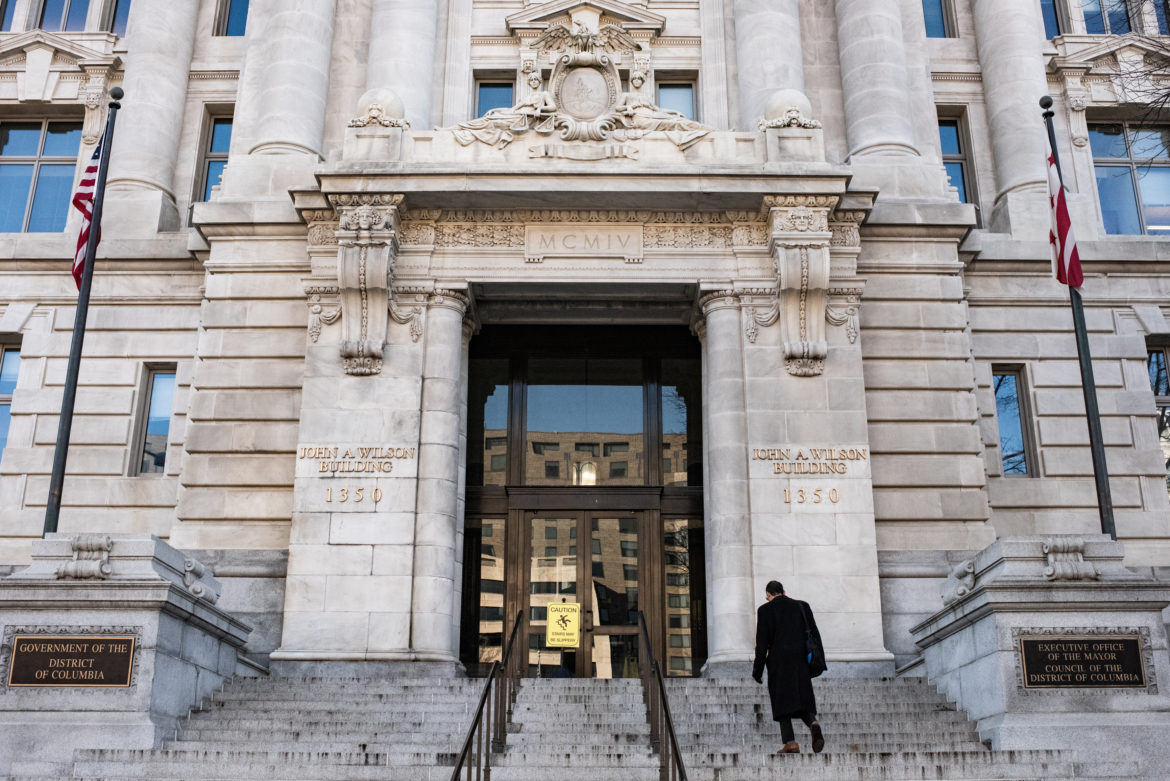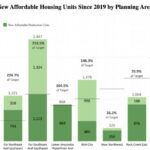UPDATE – Apr 7, 2021 – DC Council Approves First Changes To Eviction Ban – Bis
By The Washington Business Journal, Apr 2, 2021,
D.C. lawmakers next week will consider allowing the first evictions since the outbreak of the Covid-19 pandemic, perhaps letting landlords evict tenants they deem dangerous to their neighbors.
The D.C. Council is set to vote Tuesday on an emergency bill from Councilwoman Anita Bonds, D-At large, that would add a “public safety” exception to the city’s eviction moratorium. The eviction ban has been in place for more than a year, but landlords have increasingly agitated for some easing of that restriction as the pandemic has dragged on.
The bill would let a property owner pursue an eviction if a tenant has attacked or threatened neighbors, or been found with an illegal firearm in their apartment. It gives judges the chance to consider whether a tenant “presents a current and substantial threat to the health and safety” to other residents or apartment management in deciding whether to allow an eviction to proceed.
The legislation requires landlords to give tenants a 30-day warning to resolve any issues, cautioning that eviction proceedings will follow if complaints persist. These “notices to cure” will also aim to make people aware of government services, should they need help.
Landlords say they desperately need this exception, arguing they’ve been unable to evict dangerous residents during the pandemic, leading to violent confrontations between apartment managers and tenants. Advocates have been wary of allowing any exceptions, but it’s an idea that seems to be gaining steam.
Mayor Muriel Bowser’s “Saving D.C. Rental Housing Market Strike Force” endorsed the proposal last week in issuing its final set of recommendations for policies to help landlords and renters. Bonds, who chairs the council’s housing committee, said recently she did not believe she had enough support to pass this sort of bill, but landlord groups are hoping that’s changed.
“We’re pretty confident that we can get this passed…and our intent is really in good faith here,” said Randi Marshall, vice president of government affairs at the Apartment and Office Building Association of Metropolitan Washington. “This provides a tool of relief for housing providers and their neighbors.”
D.C.’s eviction moratorium is among the strongest in the nation, and tenant advocates fear landlords will use any kind of exception as a pretext to evict people who aren’t paying rent. Many prefer to wait until Covid’s effects on the economy subside a bit before allowing any new evictions. By statute, the moratorium is to sunset 60 days after the end of D.C.’s public health emergency, which is currently set to expire on May 20.
“We’re opposed to any exception, and this one is fairly narrow, but there’s always room for abuse by landlords and confusion from tenants,” said Beth Mellen Harrison, a housing attorney at the Legal Aid Society of D.C. “And AOBA has wanted much broader exceptions in the past, so we’re being watchful about this.”
Marshall believes the millions in federal rent relief flowing to the District ensures that landlords have “no incentive” to evict someone simply because they aren’t paying, as they’d lose out on that federal money. Harrison is a bit more suspicious of that assertion, however, given the calls she still receives from tenants being threatened by their landlords, often illegally.
“You don’t get access to that money if you don’t have a tenant,” Marshall said. “So the only reason you’d evict someone is because of a real public safety issue.”
She expects landlords would need to show evidence in court to support these assertions as well, ranging from police reports to security camera footage. She believes this could make an especially meaningful impact in cases where neighbors call the police on a tenant they believe is dangerous, but where law enforcement can only go so far.
“We have some of them arrested and in three or four days, they’re out and back to the same activity,” said Arianna Royster, executive vice president at Borger Management. “It’s definitely contributed to some of our vacancy issues…and in some buildings where we’ve never had security, we have to have 24/7 security. It increases our costs.”
To read the full article Click Here







